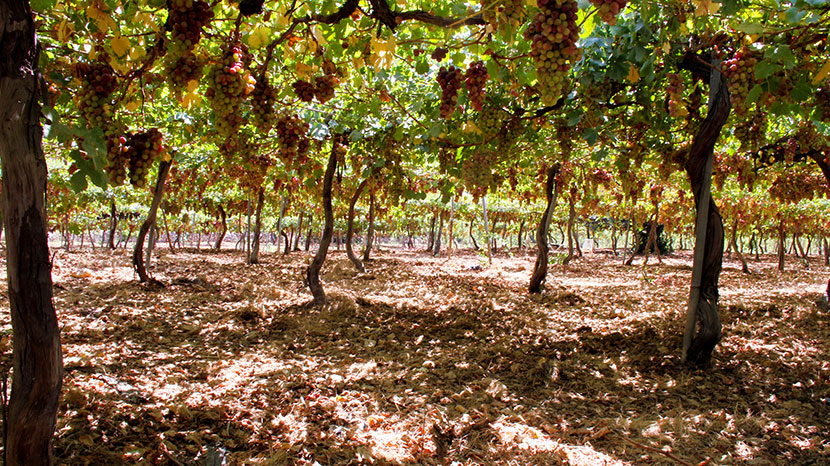Biology Professor Analyzes Medicinal Properties of Grape Leaves
For about four years, Biology and Biochemistry professor Jamil Harb has worked with his students at Birzeit University researching and exploring the health-promoting phytochemicals of grapes, aiming to prove the importance of grapevine leaves in combating lung cancer.
Harb and his students have conducted two studies detailing the chemical make-up of the grape plant.
"In the laboratories of Birzeit University, I worked hand-in-hand with my students on the characterization of the effective phytochemicals in two local grape varieties, namely Baituni and Shami. After extensive analysis and research, we found out that Shami grapevine leaves from Beit Omar Village in Hebron significantly reduce the proliferation of lung cancer cells."
He said that grapevine leaves collected from this dry region had higher levels of primary metabolites, whereas differences in secondary metabolites were genotype-dependent.
Harb also conducted another study of 12 local grape varieties collected from the Hebron area. The results of the study, according to Harb, showed clearly that genotypes differ significantly according to their metabolome, or the total number of metabolites, as well as according to the expression of related genes.
Based on his two studies, Harb initiated in 2015 in cooperation with Ludwig Maximillian University in Munich, a new study to assess another batch of grape genotypes, both at the metabolic and molecular level.
Harb expressed his hope of developing a new medication that is able to prevent and combat cancer, to be registered under Birzeit University's trademark.
The second study is supported by the Scientific Research Committee at Birzeit University, and the Arab Fund for Economic and Social Development through the Distinguished Scholar Award Program.







